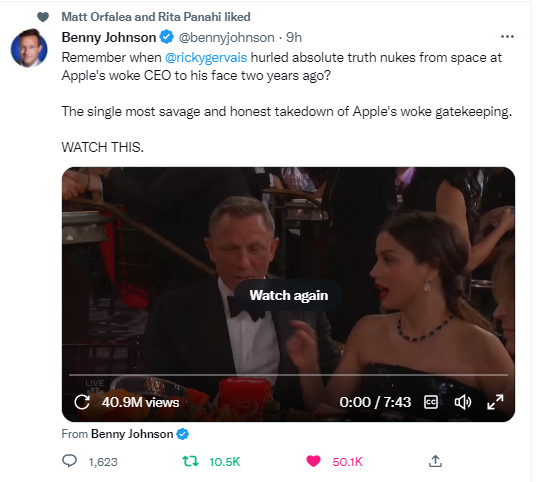New York has enacted a law ostensibly requiring "social media platforms" to police "hate speech." Here is an excerpt from that law, Section 394-CCC:
2. A SOCIAL MEDIA NETWORK THAT CONDUCTS BUSINESS IN THE STATE, SHALL PROVIDE AND MAINTAIN A CLEAR AND EASILY ACCESSIBLE MECHANISM FOR INDIVIDUAL USERS TO REPORT INCIDENTS OF HATEFUL CONDUCT. SUCH MECHANISM SHALL BE CLEARLY ACCESSIBLE TO USERS OF SUCH NETWORK AND EASILY ACCESSED FROM BOTH A SOCIAL MEDIA NETWORKS' APPLICATION AND WEBSITE, AND SHALL ALLOW THE SOCIAL MEDIA NETWORK TO PROVIDE A DIRECT RESPONSE TO ANY INDIVIDUAL REPORTING HATEFUL CONDUCT INFORMING THEM OF HOW THE MATTER IS BEING HANDLED.
3. EACH SOCIAL MEDIA NETWORK SHALL HAVE A CLEAR AND CONCISE POLICY READILY AVAILABLE AND ACCESSIBLE ON THEIR WEBSITE AND APPLICATION WHICH EXPLANATION INCLUDES HOW SUCH SOCIAL MEDIA NETWORK WILL RESPOND AND ADDRESS THE REPORTS OF INCIDENTS OF HATEFUL CONDUCT ON THEIR PLATFORM.
There are many problems with this law,
according to FIRE:
Today, the Foundation for Individual Rights and Expression sued New York Attorney General Letitia James, challenging a new state law that forces websites and apps to address online speech that someone, somewhere finds humiliating or vilifying....
“New York politicians are slapping a speech-police badge on my chest because I run a blog,” said plaintiff Eugene Volokh, who co-founded The Volokh Conspiracy legal blog in 2002. “I started the blog to share interesting and important legal stories, not to police readers’ speech at the government’s behest.”
The law forces internet platforms of all stripes to publish a policy explaining how they will respond to online expression that could “vilify, humiliate, or incite violence” based on a protected class, like religion, gender, or race. The law also requires the platforms to create a way for visitors to complain about “hateful” content or comments, and mandates that they answer complaints with a direct response. Refusal to comply could mean investigations from the attorney general’s office, subpoenas, and daily fines of $1,000 per violation.
New York’s law doesn’t define “vilify,” “humiliate,” or “incite.” Yet, it targets speech that could simply be perceived by someone, somewhere, at some point in time, to vilify or humiliate, rendering the law’s scope entirely subjective. (The First Amendment does not protect inciting imminent violence, but New York’s law offers no indication, as the First Amendment requires, that it applies only to speech directed to and likely to produce imminent lawless action.) ....
“The state of New York can’t turn bloggers into Big Brother, but it’s trying to do just that,” said FIRE attorney Daniel Ortner. “The government can’t burden online expression protected by the Constitution, whether it’s doing it in the name of combating hate or any other sentiment. Imagine a similar law requiring sites to publish a reporting policy for speech the state considers un-American — that would be just as unconstitutional.”
Here is FIRE's complaint, filed the Federal District Court of New York, Southern District.


